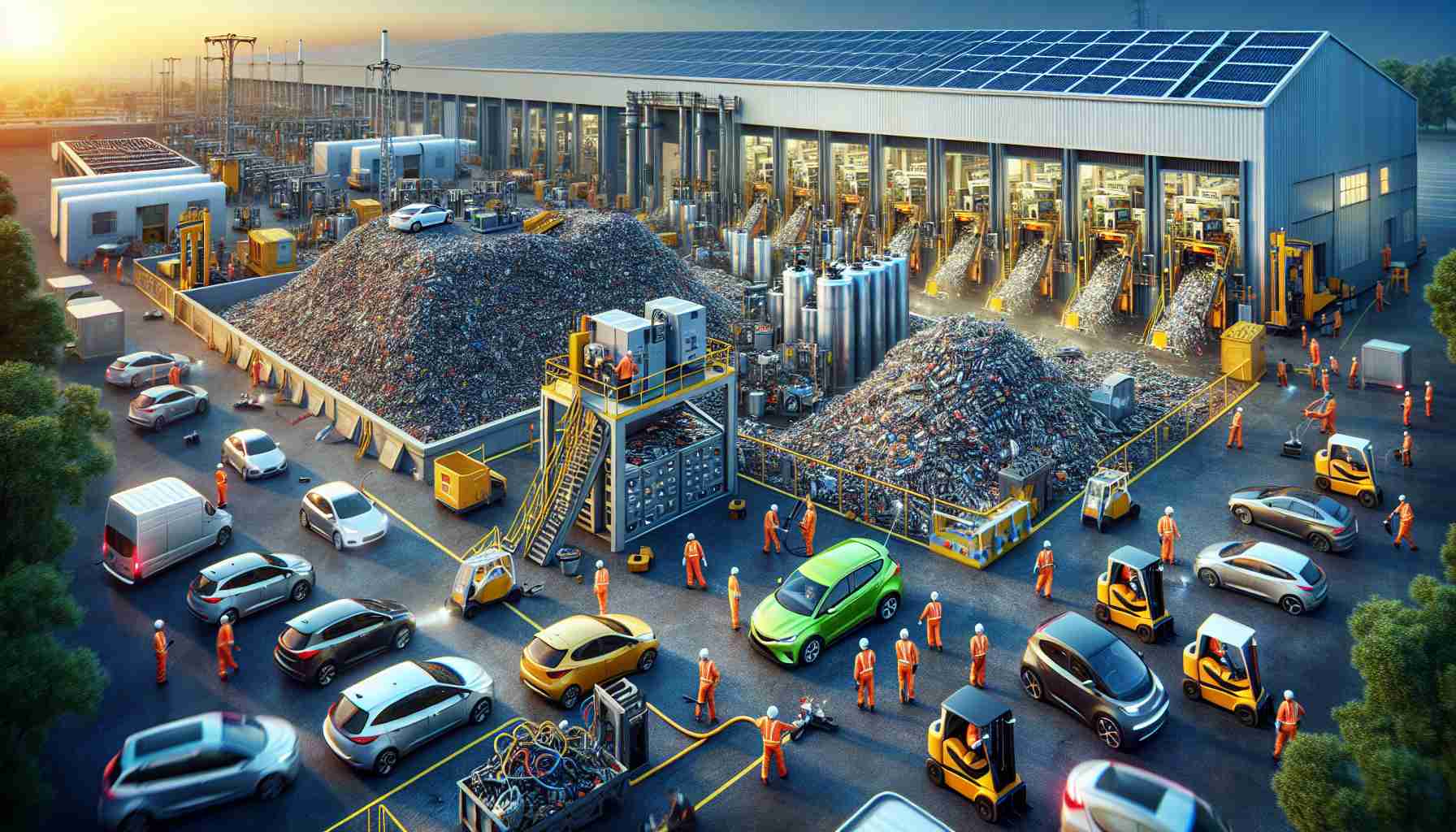Transforming the Future of Energy
In an exciting development for the Indian electric vehicle (EV) sector, Lico Materials, a pioneering recycling startup, has inaugurated a state-of-the-art battery recycling facility in Bengaluru. This ambitious project is supported by an investment of ₹2.5 billion (approximately USD 29 million) directed towards establishing an advanced hydrometallurgy plant in the upcoming two to three years.
Operating with an impressive 4 GWh per annum capacity, the facility is strategically positioned to ensure a steady supply of crucial battery components. This comes at a time when India is set on achieving 30% electric vehicle adoption by 2030. Looking ahead, Lico plans to enhance its capacity to 10 GWh within the next three to four years to support a rapidly expanding EV industry, which is forecasted to grow by 250%, alongside an energy storage market projected to reach 42GW by 2032.
The significance of the facility lies in its ability to recycle up to 17,500 metric tonnes of batteries, an essential step in mining valuable minerals from used batteries, thus promoting a sustainable battery circular economy. According to the CEO of Lico Materials, this facility symbolizes a crucial advancement in lithium-ion battery recycling and aims to strengthen India’s clean energy initiatives while reducing reliance on imported materials.
Revolutionizing Battery Recycling: India’s Path to Sustainable EV Energy
Transforming the Future of Energy
India is witnessing a substantial transformation in its electric vehicle (EV) sector, particularly with the recent inauguration of a cutting-edge battery recycling facility by Lico Materials in Bengaluru. This pioneering initiative is crucial for the country’s sustainable energy ambitions, fueled by a significant investment of ₹2.5 billion (approximately USD 29 million). The facility is set to enhance the local recycling landscape and is expected to operate at an annual capacity of 4 GWh, with plans to scale this up to 10 GWh in the next several years.
Key Features and Specifications
1. Capacity and Technology: The facility utilizes advanced hydrometallurgical processes to efficiently recycle batteries. Initially capable of processing 4 GWh, Lico Materials aims to double this capacity, aligning with the escalating demand for EV batteries and components.
2. Recycling Capabilities: This facility is designed to recycle approximately 17,500 metric tonnes of batteries annually, extracting essential minerals, which are vital for new battery production. This positions Lico not just as a recycling entity but as a critical player in a sustainable battery supply chain.
3. Market Growth and Trends: The Indian EV market is anticipated to grow by 250%, with projections estimating an energy storage market reaching 42GW by 2032. This growth underscores the urgency of effective recycling solutions to cater to increasing demands.
Pros and Cons
# Pros
– Sustainability: Recycling batteries reduces the need for raw material mining, minimizing environmental impact.
– Economic Opportunities: Establishing a local recycling plant creates jobs and supports the Indian economy.
– Energy Independence: Reducing reliance on imported materials enhances India’s energy security.
# Cons
– Initial Costs: The establishment and operation of advanced recycling technology may pose high initial costs.
– Regulatory Challenges: Adapting to local regulations and obtaining necessary certifications can be a time-consuming process.
Use Cases
The facility’s processed materials can be utilized in:
– New EV Battery Production: Recycled minerals can be reintegrated into the supply chain for manufacturing new batteries.
– Energy Storage Solutions: The recycled components can be employed in developing energy storage systems, critical for sustainable energy management.
Insights and Innovations
Lico Materials’ new facility is a testament to innovation in the realm of battery recycling. By repurposing lithium-ion batteries, Lico not only contributes to the circular economy but also reinforces India’s commitment to clean energy.
Predictions and Future Trends
Looking ahead, as the demand for electric vehicles continues to rise, facilities like those established by Lico will become increasingly pivotal. The expansion from 4 GWh to 10 GWh of capacity suggests a robust and scalable approach to battery recycling, which is expected to attract further investment in the future.
Security and Sustainability Aspects
The establishment of a lithium-ion battery recycling facility addresses both environmental degradation linked to battery production and potential security concerns regarding the supply of critical minerals. Investing in local recycling capabilities ensures that India’s burgeoning EV market is sustainable in the long run.
For further insights into the future of energy and electric vehicles in India, visit The Hindu.









